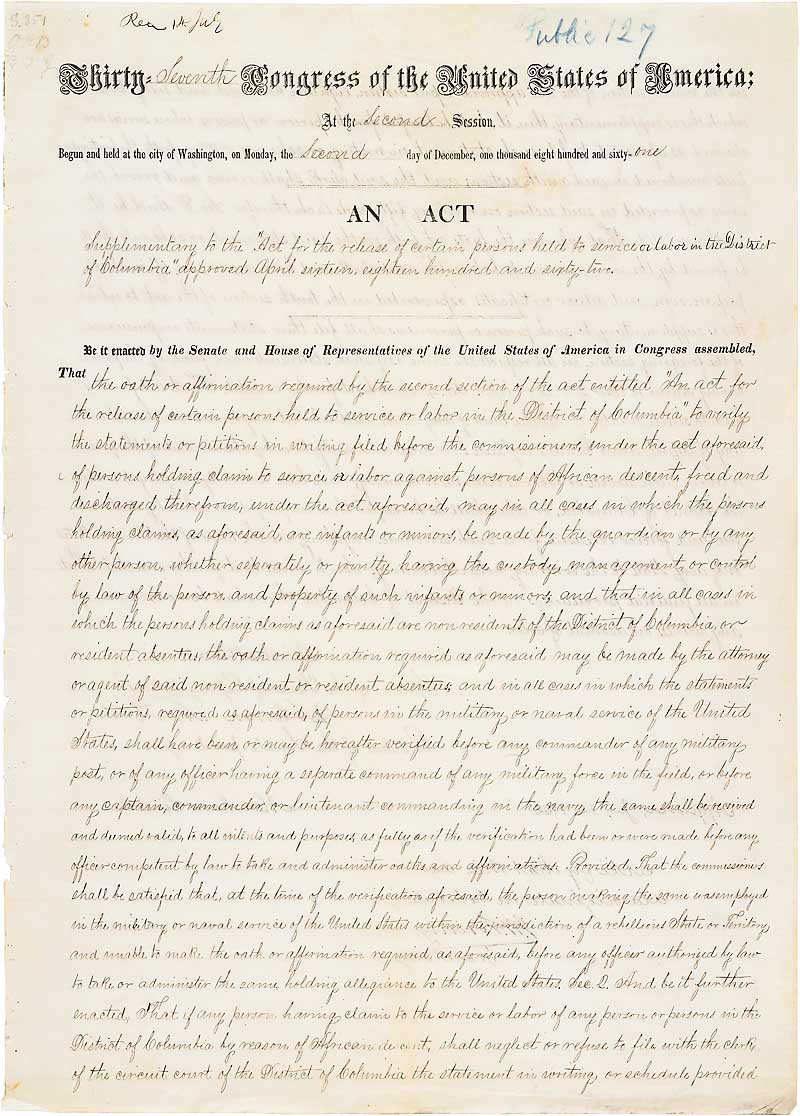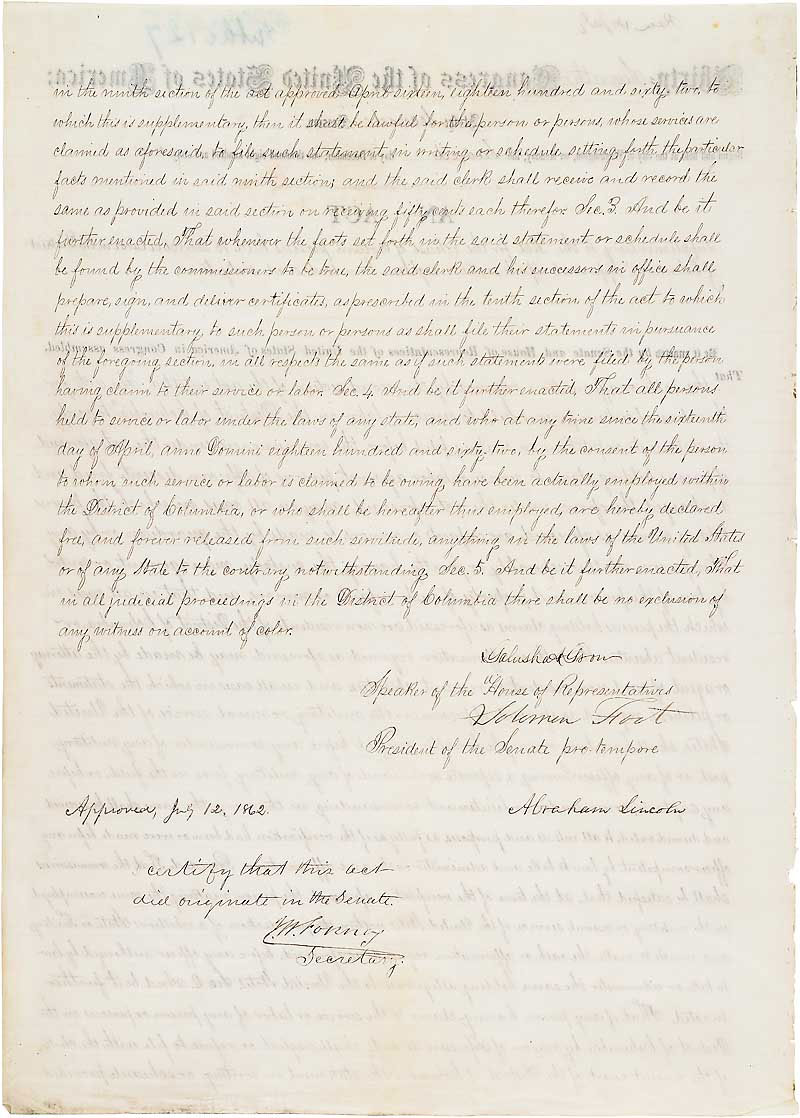On July 12, 1862, Congress passed a supplemental bill to the original DC Emancipation Act which covered another type of claim, allowing slaves whose masters had not filed for compensation to do so. An important factor in deciding claims under this Act was that the testimony of both blacks and whites was accepted. Now, if an owner challenged a slave who petitioned for freedom, the testimony from both was given equal weight, a sharp departure from the previous legal practice in which slaves or freed blacks could not testify against whites.

